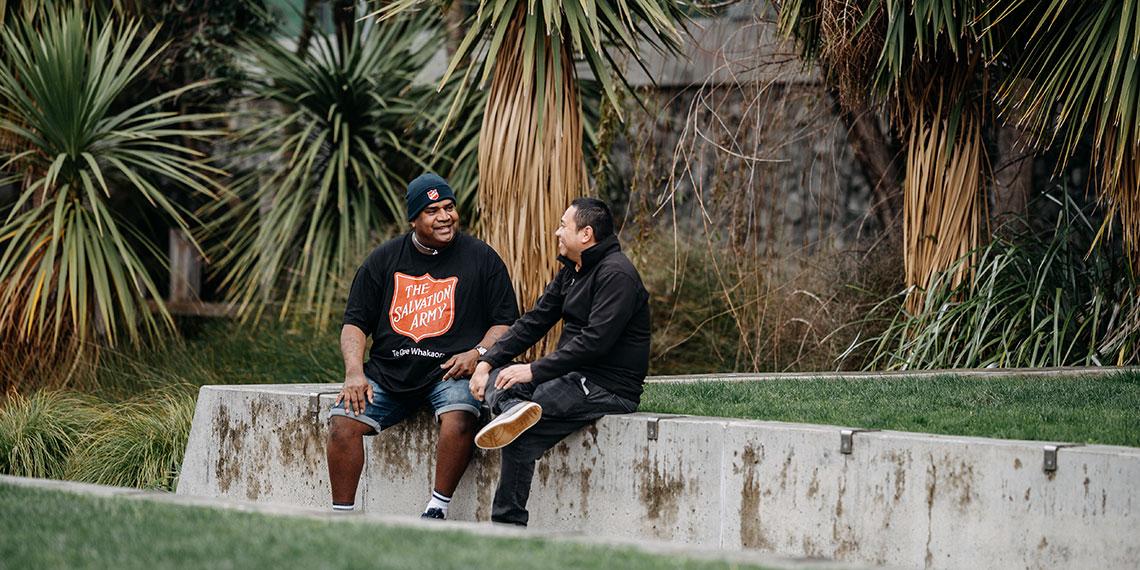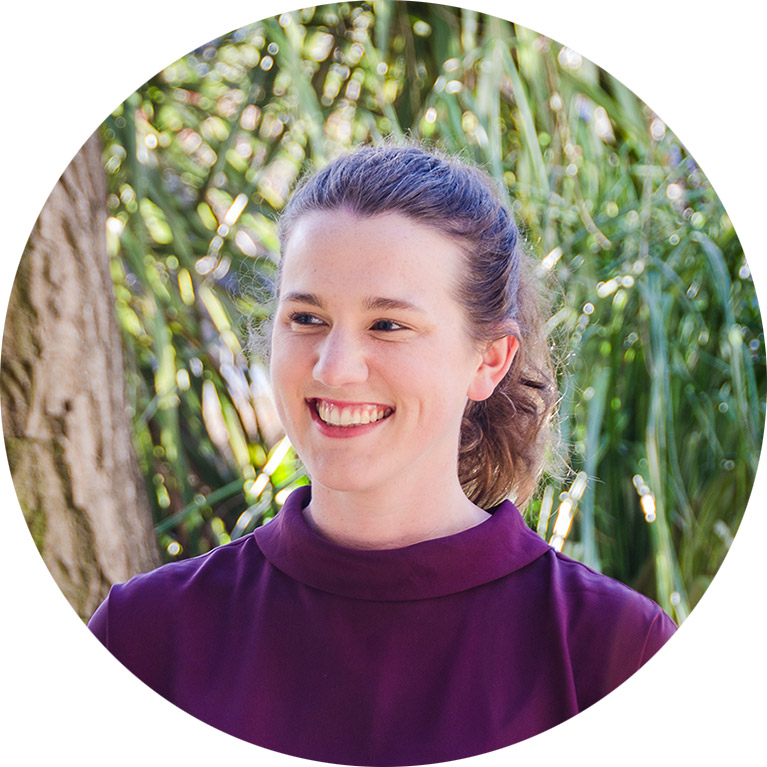You are here
Community Ministries—So Much More Than a Handout

The Salvation Army’s Community Ministries is committed to providing wraparound, holistic support to every client that enters through its centres’ doors—but Territorial Director Jono Bell also wants to see people taking the ethos of their work out into their own corps and communities.
When ‘Community Ministries’ is mentioned, what comes to mind for most Salvationists is probably the services that run adjacent to their local corps.
Bolstered by hard working teams of staff and volunteers, Community Ministries centres give out food parcels, provide financial counselling, run education programmes, solve housing dilemmas and much more.
And yet, when you separate the two words—community and ministry—it is something that we are all called to do: minister to those in our local community.
Territorial Director of Community Ministries Jono Bell believes that the ‘secret’ to Community Ministries is people and relationships. He says the same logic applies to taking Community Ministries from being a service housed in a building, to something that is lived out in the community by loving our neighbours.
‘There are 10,000 people regularly worshipping in The Salvation Army. Imagine what 10,000 people could do in their own community. It may just be one family in a school that you bump into, or one neighbour, but you can make a difference in that moment.’
‘This is about us being engaged with people, in ministry, in our communities.’
Providing wraparound support
When a client approaches one of The Salvation Army’s Community Ministries centres, they rarely present with a single issue that can be neatly resolved. Usually, an aspect of their living situation—be that housing, finance or hunger—has spiralled and prompted them to seek support for themselves and their whānau.
Community Ministries has a strengths-based model of care, which focuses on transformative, wraparound work. It recognises the strengths and resources that each person has, as well as identifying problematic circumstances, challenges and risks. ‘That could be an unhealthy relationship, it may be that they didn’t have enough finance to pay the bills. It may be that they are struggling with the behaviour of their children.
‘We really want to confront and address the underlying issues that people come with,’ Jono says, ‘rather than just providing the Band-Aid of meeting that immediate need. We do that—we feed people, we put a roof over their heads, if we can—however, at the same time, that’s not our objective. We don’t want to see them again in two years’ time … we want to be able to address what those issues and challenges are.’
From there, they can develop a plan for the client to move forward into a better, more sustainable future.
Emma*, a client in Whangārei, suffers from chronic depression and is currently separated from her partner while co-parenting her two children, one of whom lives with her. She contacted her local Community Ministries—via text message and a follow-up phone call—during lockdown last year to request food assistance. During those conversations, she was told about PLP (Positive Lifestyle Programme) and started the course during level 2 lockdown.
An early goal identified was to reinforce Emma’s support network, so Community Ministries was able to help with petrol and food vouchers for her to travel to Auckland and reconnect with her mother.
While the trip was a mental and emotional challenge, through support from Community Ministries, she faced those challenges and made good progress. She is still struggling financially, but she has begun part-time work, receives regular food parcels from City Mission and is continuing to work on her money management and PLP courses.
This type of meaningful change, addressing underlying risk factors while bringing out positive growth, is made possible by journeying with clients. ‘We’re not time bound,’ Jono explains. ‘We don’t say, “Your six months are up, we have to let you go on”. We’re able to work with people as long as it takes.
‘The wraparound support that comes in is when we comprehensively understand what’s going on for the person, and that can take weeks to do. That isn’t just a one-off interaction.’
In those sessions, they can unearth strengths and resources which can make the client resilient and able to thrive.
Samantha* came to Glenfield Community Ministries three years ago, presenting with huge debt and a serious prescription drug addiction. By working with financial mentors, she was able to learn about the basics of money management and work on her debt. She also grew in confidence, which led her to making positive changes in her life, such as developing a CV and applying for jobs. She learned how to negotiate with her debtors and is now debt-free with a full-time job.
Community Ministries’ strengths-based approach lifts clients’ eyes to see a better vision for their own futures—and, often, their whānau as well.
‘The doorway is that they want a great future for their kids, and they know they need to make change for the sake of their kids,’ Jono says. ‘They just don’t know how to get there. And that’s when we can help.’
Talia* approached The Salvation Army for emergency housing in June 2018. She was five months pregnant with a young daughter. She shared her goals with them: permanent housing, keeping her family together and for her husband to return from Samoa. However, she had struggled with the dynamics of private housing applications due to cultural differences.
Her Community Ministries worker joined Talia at house viewings, advocated for her with the Ministry of Social Development and Kāinga Ora and supported her husband with his residency application. Talia eventually gained a property shortly before her third child was born in June last year; her husband is in the final stages of the residency process and they are happily settled.
Last year, her Community Ministries worker was invited to Talia’s son’s first birthday celebration. There, Talia called her son her ‘Salvation Army baby’.
Meeting present needs
The recent Covid-19 resurgence in the community has not slowed any Community Ministries centres. Safety protocols are in place and, in the case of a lockdown or level change, they are set up to provide interviews, counselling and programmes over a range of mediums (such as social media, webinars and phone calls). Collection of food parcels can continue by limiting contact in line with strict health and safety requirements.
Highlighting the importance of food support in recent months, The Salvation Army’s Social Policy and Parliamentary Unit’s recent State of the Nation 2021 report (‘Disturbed Present, Better Future?’) revealed an enormous increase in food parcels distributed by Community Ministries in the past twelve months. More than 113,000 food parcels were provided across the country by the end of December 2020, almost twice the number of the previous year. Of these food parcels, 37,000 were handed out in the eight weeks of the levels 3 and 4 national lockdowns.
Another ongoing concern is the stress and anxiety exacerbated by Covid-19 case spikes, something that Community Ministries are addressing through programmes such as PLP. ‘We’re able to help them [clients] understand what some of those impacts are and what strategies they can have so they feel more in control and less anxious.’
Unsurprisingly, housing continues to be a standout issue. While The Salvation Army has hundreds of people already housed (in homes, transitional housing, disability homes and addiction services), centres still receive requests for help on a daily basis.
One Wellington family was confronted with a $150 per week increase in rent, and their only option forward was to sleep in their car. ‘They didn’t have any excess or surplus in their working budget. There’s no way they can support that,
so there’s no alternative for them.’
Another recent example was a refugee family with six children. ‘There were no motels big enough for them,’ Jono explains, ‘so this family stayed in a school hall for a week with some mattresses that we were able to scrounge as a temporary option.
‘It doesn’t matter whether you’re rural or inner city, this is the real big issue.’
With these stories landing on the doorsteps of centres regularly, this is where The Salvation Army can intervene—not just in terms of meeting the immediate need, but through the wraparound support model, safeguarding and encouraging clients that there are better alternatives possible for them.
‘Everyone has the resources to change,’ Jono affirms. ‘We are able to shine a light, I suppose, and we say, “change is possible, but you don’t have to feel you have to walk it alone. That’s what we’re here for”.’
And he believes this is what the wider community are here for as well.
Living out Community Ministry
Many of the circumstances that cause clients to approach Community Ministries stem from prevalent, systemic issues which will require major change to turn the tide. ‘There are numerous solutions out there, but it’s up to politicians, government officials, policy advisors and the public that support those politicians to really make some sacrificial or bold decisions.’
In some cases, he believes people might need to ask themselves hard questions. ‘How many of us have excess homes? How many Salvationists are landlords and are charging market rent because they can, maximising their profits while potentially keeping families in the cycle of poverty?’
However, from humble and simple acts of kindness, big things grow.
Jono’s hope is that people would not see these seemingly insurmountable issues—like hunger, debt and homelessness—as the responsibility of services and not-for-profit charities to carry alone. Rather, he believes we can and should all take up the call to be Jesus’ hands and feet in our neighbouring communities.
‘The challenge would be that everybody has a Community Ministries as part of their corps. What people on the margins are you in relationship with?’ Jono asks. ‘And that simply might be having a coffee, smiling and welcoming them and having a conversation with them. For me, that’s something we can all do that’s very simple. And through that interaction, such positive transformation can occur for people.’
Jono believes that what sets The Salvation Army apart from other faith-based organisations is its commitment to those living on the margins—something he sees lived out by the staff of Community Ministries every day, and hopes to see taken up by all Salvation Army communities.
‘The difference isn’t our qualifications or the skills. The difference we make is about one person engaging with another, showing love and empathy. That’s where the real transformation occurs—in relationships.’
* All names of clients have been changed for confidentiality.
